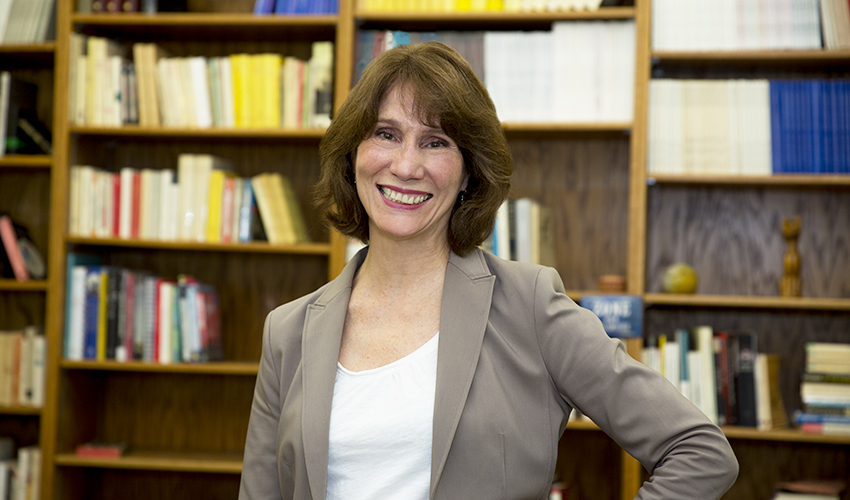
HWS News
9 March 2017 • Research Studying Marivaux
Professor of French and Francophone Studies and Dean of William Smith Catherine Gallouet was so inspired by research conducted by students in her advanced level French course in the fall of 2015 that along with Olivia Woodruff '16, she wrote Doing Marivaux in an undergraduate classroom. The work was presented at the NEASECS North American Society for Eighteenth Century Studies, held at the University of Massachusetts Amherst.
"I taught a seminar on Marivaux in the fall of 2015," says Gallouet. "As part of the course, students endeavored to translate one text, L'Indigent philosophe, and produce a one-act play, La Dispute." Her paper, which was presented in October of 2016, focused on the pedagogical value of having undergraduate students perform original research.
Over the course of the semester, one student was assigned a part of L'Indigent philosophe to translate each week which was then analyzed by the class. The same text was then reassigned to another student in order to re-work the translation. This process was repeated until the class had written an entire rough draft.
"In deconstructing and taking apart their translations word by word, the goal was to answer every possible question an undergraduate reading the text in translation for the first time would have," says Gallout. Students also conducted their own research on how the meaning of the 18th century words had changed over time and how Marivaux's allusions would have been by perceived by a modern audience.
The class also read and recreated the play La Dispute. Students contributed research on 18th century costumes and theater practices to envision how the play would be performed. Woodruff took on the role of translating the play and gave a reading of her work for her final project.
Woodruff and Gallout continued to rework the translation of the play into the spring semester. The pair hopes to one day cast HWS actors in order to direct and watch their rendition brought to life.
"The class was immensely successful because the students had the feeling that they were controlling the pace, the topics and the ways we did things," says Gallouet. "Only at the end of the semester did they fully realize that they had conducted actual scholarly research that would have outcomes."
At the NEASECS Conference, Gallouet also chaired a session titled, Resistance Class and Race in European Fiction that aligned with her own research on discourses of resistance by African protagonists in European culture.
Woodruff graduated from William Smith with a bachelor's degree in French and Francophone studies and a double minor in dance and education. She is currently a Fulbright Scholar teaching English in Senegal, and is applying to graduate school programs in national comparative education.
